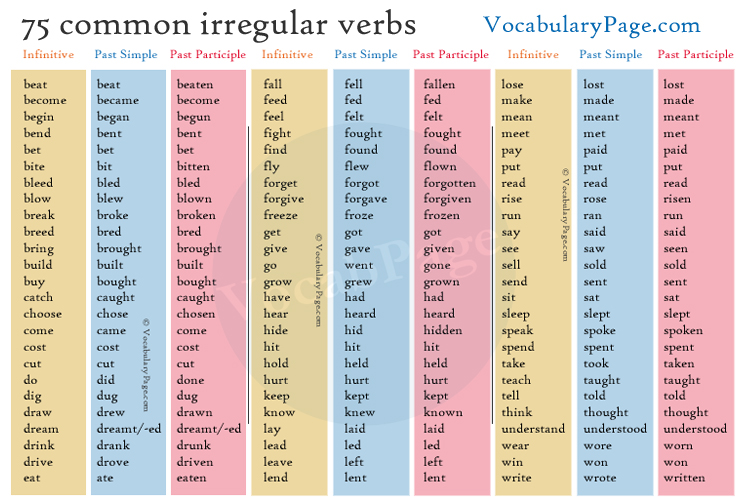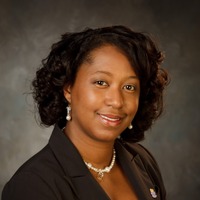What are the irregular past tense verbs in English?
Irregular past tense verbs in English are verbs that do not follow the standard rule for forming the past tense, which is to add -ed to the base form of the verb. These verbs have irregular past tense forms that must be memorized.
Here is a brief answer:
Irregular past tense verbs are verbs that do not follow the standard rule for forming the past tense.
These verbs have irregular past tense forms that must be memorized.
Here is a more detailed answer:
In English, the past tense is usually formed by adding -ed to the base form of the verb. For example, the past tense of the verb "walk" is "walked." However, some verbs do not follow this rule and have irregular past tense forms. These verbs are known as irregular past tense verbs.
Here are some common irregular past tense verbs in English:
"be" (was, were)
"become" (became)
"begin" (began)
"bite" (bit)
"blow" (blew)
"break" (broke)
"build" (built)
"buy" (bought)
"catch" (caught)
"choose" (chose)
"come" (came)
"do" (did)
"drink" (drank)
"eat" (ate)
"fall" (fell)
"feed" (fed)
"feel" (felt)
"find" (found)
"fly" (flew)
"forget" (forgot)
"get" (got)
"give" (gave)
"go" (went)
"grow" (grew)
"have" (had)
"hear" (heard)
"hit" (hit)
"hold" (held)
"hurt" (hurt)
"keep" (kept)
"know" (knew)
"lay" (laid)
"leave" (left)
"lose" (lost)
"make" (made)
"mean" (meant)
"meet" (met)
"pay" (paid)
"put" (put)
"quit" (quit)
"read" (read)
"ride" (rode)
"ring" (rang)
"rise" (rose)
"run" (ran)
"say" (said)
"see" (saw)
"sell" (sold)
"send" (sent)
"set" (set)
"sew" (sewed)
"shake" (shook)
"shine" (shone)
"shoot" (shot)
"show" (showed)
"shut" (shut)
"sing" (sang)
"sink" (sank)
"sit" (sat)
"sleep" (slept)
"speak" (spoke)
"spend" (spent)
"stand" (stood)
"steal" (stole)
"stick" (stuck)
"strike" (struck)
"swim" (swam)
"swing" (swung)
Here are a few multiple choice questions to help you practice using irregular past tense verbs:
What is the past tense of the verb "walk"?
a. walk
b. walked
c. walking
d. walker
Answer: b. walked
What is the past tense of the verb "be"?
a. be
b. was
c. were
d. been
Answer: b. was
What is the past tense of the verb "become"?
a. become
b. became
c. becoming
d. becomer
Answer: b. became
What is the past tense of the verb "begin"?
a. begin
b. began
c. beginning
d. beginner
Answer: b. began
What is the past tense of the verb "bite"?
a. bite
b. bit
c. biting
d. biter
Answer: b. bit
What is the past tense of the verb "blow"?
a. blow
b. blew
c. blowing
d. blower
Answer: b. blew
What is the past tense of the verb "break"?
a. break
b. broke
c. breaking
d. breaker
Answer: b. broke
What is the past tense of the verb "build"?
a. build
b. built
c. building
d. builder
Answer: b. built
What is the past tense of the verb "buy"?
a. buy
b. bought
c. buying
d. buyer
Answer: b. bought
What is the past tense of the verb "catch"?
a. catch
b. caught
c. catching
d. catcher
Answer: b. caught
What is the past tense of the verb "choose"?
a. choose
b. chose
c. choosing
d. chooser
Answer: b. chose
What is the past tense of the verb "come"?
a. come
b. came
c. coming
d. comer
Answer: b. came
What is the past tense of the verb "do"?
a. do
b. did
c. doing
d. doer
Answer: b. did
What is the past tense of the verb "drink"?
a. drink
b. drank
c. drinking
d. drinker
Answer: b. drank
What is the past tense of the verb "eat"?
a. eat
b. ate
c. eating
d. eater
Answer: b. ate
What is the past tense of the verb "fall"?
a. fall
b. fell
c. falling
d. faller
Answer: b. fell
What is the past tense of the verb "feed"?
a. feed
b. fed
c. feeding
d. feeder
Answer: b. fed
What is the past tense of the verb "feel"?
a. feel
b. felt
c. feeling
d. feeler
Answer: b. felt
What is the past tense of the verb "find"?
a. find
b. found
c. finding
d. finder
Answer: b. found
What is the past tense of the verb "fly"?
a. fly
b. flew
c. flown
d. flyer
Answer: Flew
Conclusion:
In conclusion, irregular past tense verbs in English are verbs that do not follow the standard rule for forming the past tense, which is to add -ed to the base form of the verb. These verbs have irregular past tense forms that must be memorized in order to use them correctly. It is important to practice using irregular past tense verbs in order to improve your understanding and use of the English language.


What are the irregular past tense verbs in English?
Irregular verbs are verbs that do not follow the normal patterns for tense and past participle. While most English regular verbs use the ending “-ed” for the past tense and participle forms, irregular verbs each have their own unique tense forms and past participles. For example, the verb "drink", we form its past tense by changing its spelling and we say "drank".
Let's use them in a sentence:
I drink a lot of water every day.
I drank a lot of beer last night.
More examples:
Verb: eat
I eat two eggs a day.
I ate a sandwich yesterday.
Please remember:
In most cases, irregular verbs change its spelling and pronunciation to form the past tense or past participle. In addition, you can try to familiarize those verbs that take irregular past tense.
What are the irregular past tense verbs in English?
Hold on....it's a long list. And you are going to need to memorize it.
Past Tense Verbs
REGULAR VERBS - When a regular verb is conjugated (changed to each verb form), the past tense and past participle (have + past) of the verb adds either an "-ed" (want = wanted, look = looked, stop = stopped) or a "-d" (use = used, love = loved, like = liked).
IRREGULAR VERBS - Do NOT follow the rules for past tense and past participle. While most English regular verbs use the ending “-ed” or "-d" for the past tense and participle forms, irregular verbs each have their own unique tense forms and past participles, AND they’re all a little different.
Sorry, no choice but to memorize each one, along with their special irregular verb forms.
Irregular Verbs in Practice
A regular Verb: need or dance
NEED
Present: I need to go to the store.
Past: I needed to by milk yesterday.
Past Participle: I have needed to look for a new cookbook too.
DANCE
Present: I dance everyday.
Past: I danced at the wedding.
Past Participle: I have danced since I was three.
An Irregular Verb: sing or sleep
SING
Present: I sing for fun.
Past: I sang at the norebang for my birthday.
Past Participle: I have sung for large crowds
SLEEP
Present: I sleep in a large bed.
Past: I slept well last night.
Past Participle: I have slept in a hotel.
Common Irregular Verbs List

Try this video to help you pronounce the words.
Irregular verbs are verbs that do not change forms in the regular or usual way.
What are the 4 types of irregular verbs?
Four categories of irregular verbs
Irregular verbs with the same base form, past tense and past participle.
Irregular verbs with the same base form and past participle.
Irregular verbs with the same past tense and past participle.
Irregular verbs with a different base form, past tense and past participle.
Base Form | Simple Past | Past Participle |
|---|---|---|
drink | drank | drunk |
drive | drove | driven |
eat | ate | eaten |
fall | fell | fallen |
That is to say, the past tense of irregular verbs is not formed by adding -d or -ed
Identifying the simple past tense of irregular verbs
Irregular verbs
Regular verbs are verbs that, when conjugated in the simple past tense, we add a 'd' or an 'ed' to their endings. With irregular verbs, they take a completely different forms, by changing some letters from the original forms.
Examples: Know-knew
Grow-grew
Be-was
Have-had
Leave-left
Think-thought
Teach-taught
There are just so many irregular verbs in the English vocabulary as one can think of. As a student, you only need to master them and understand the conjugation rules.
Irregular past tense verbs are verbs that are formed in a way that doesn't fit the -ed pattern
Irregular past tense verbs and understanding the rules
she eats/she ate, you are/you were
-ed doesn't always apply to irregular verbs in the past tense.
Let's learn about irregular past tense verbs
Irregular Past Tense Verbs
In English, there are two main types of past tense verbs.
✅ Regular Past Tense Verbs - All we need to do is add ED to the end of the word. (Kicked, picked, jumped, pumped)
✅ Irregular Past Tense Verbs - are words that change in the past tense, but sometimes they stay the same.
For example:
Sit - sat
Know - knew
Feel - felt
See - saw
Conclusion
It's always a good idea to practice using past tense verbs, then you can learn which verbs are regular or irregular, practice makes perfect! 🎖️
Regular Past Tense
In English, most verbs are the action that is going on in a sentence. Most regular verbs are turned into the past tense, showing the action is finished, by adding '-ed' to the end of a base form of the verb. Let's look at an example with 'to jump' ('jump' is the base form of 'to jump'):
I jump. (present tense)
I jumped. (past tense)
Irregular past tense verbs are verbs that are formed in a different way that does not fit the '-ed' pattern. Some are easier than others:
She eats. (present tense)
She ate. (past tense)
Sometimes irregular past tense verbs are very difficult. Even after teaching the difference of 'lie' and 'lay', many times teachers still have to look up the correct irregular past tense before writing it!


Autoplay
NormalSpeed
29K views
Irregular Past Tense Verbs
Let's take the verb 'to be' for example. In the present, past, present plural, and past plural, 'to be' is formed as follows:
Present | Past | Present Plural | Past Plural |
|---|---|---|---|
I am | I was | we are | we were |
you are | you were | you are | you were |
he/she is | he/she was | they are | they were |








